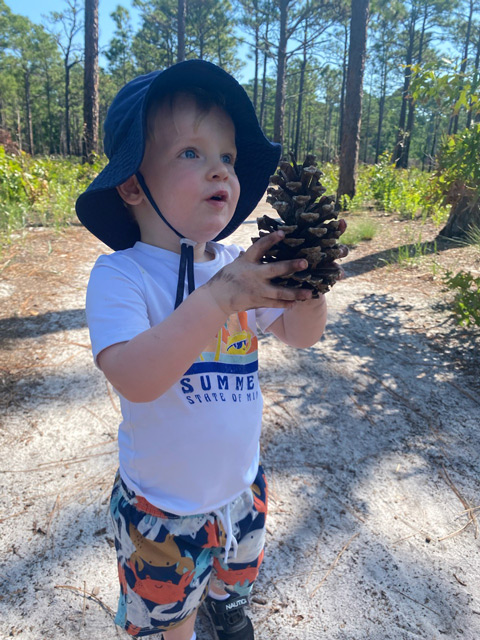With the school year behind us and summer in full swing, many families are looking forward to fun adventures and new experiences. Whether you’re planning trips to the beach, hikes in the forest, or visits to local parks, these outings offer fantastic opportunities to expand your child’s speech, language, and vocabulary. Here are some tips from Granite Bay Speech to make the most of your summer adventures:
1. Name Everything
As you walk through a park, garden, or forest, name the things you see. “Look at that tall oak tree!” or “Can you hear the chirping of the sparrows?” Introducing specific names for plants, animals, and natural phenomena helps children expand their vocabulary. Use descriptive language to enhance their understanding and retention.
2. Engage in Sensory Experiences
Nature is full of sensory experiences that can be used to develop language skills. Have your child touch different textures like rough tree bark or soft moss, and describe how they feel. Smell flowers, listen to the rustling leaves, and talk about these experiences. “This moss feels so soft and spongy. How does it feel to you?”

3. Storytelling and Imagination
Use the natural setting as a backdrop for storytelling. Create stories about the animals, plants, and landscapes you encounter. “Once upon a time, in this very forest, there was a child that found a magical pinecone…” This activity not only boosts vocabulary but also enhances narrative skills and creativity.
4. Use Rich and Varied Language
Model rich and varied language in your conversations. Instead of saying, “Look, a bird,” you might say, “Look, a magnificent red cardinal perched on that branch.” Using adjectives, prepositions, and adverbs enriches your child’s vocabulary and exposes them to more complex sentence structures.
5. Play Educational Games
Turn your nature walk into a fun learning game. Play “I Spy” with a twist: “I spy something that is fluttering and has colorful wings.” This game encourages children to pay attention to details and use descriptive language.
6. Read Nature-Themed Books
Before or after your nature exploration, read books about nature. Stories about forests, animals, and seasons can provide context and reinforce the vocabulary and concepts they encounter outdoors. Discuss the stories and relate them to what you’ve seen in nature.
7. Collect and Describe
Collect natural items like leaves, rocks, or shells, and discuss their characteristics. “This leaf is jagged and has a deep green color. How would you describe your leaf?” This activity helps with categorization and descriptive language.
8. Use Technology Wisely
Occasionally use apps or devices to identify plants, birds, and insects. These tools can provide additional information and context, expanding your child’s knowledge and vocabulary further.
9. Be Patient and Encouraging
Finally, be patient and encouraging. Celebrate your child’s efforts to use new words and express their thoughts. Positive reinforcement boosts their confidence and enthusiasm for learning.
Granite Bay Speech is here to support you and your child on the journey to better communication. If you suspect that your child may need some support in the areas of speech and language- don’t wait and see. Call Granite Bay Speech and you’ll speak with a Licensed Speech Pathologist at no charge.

